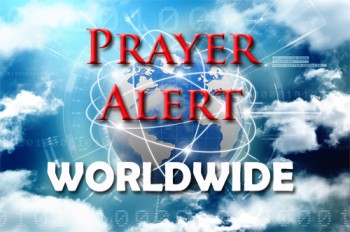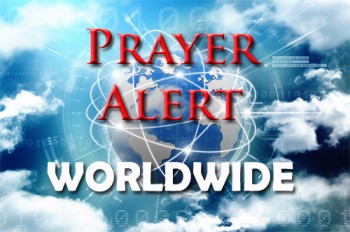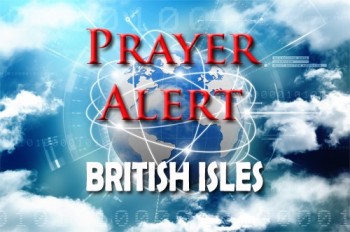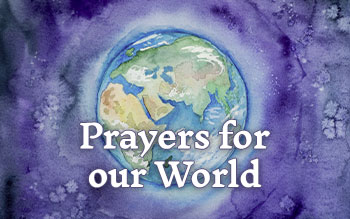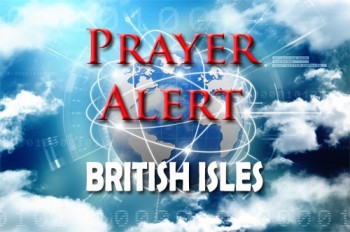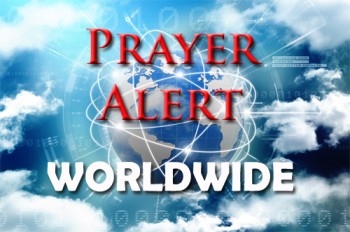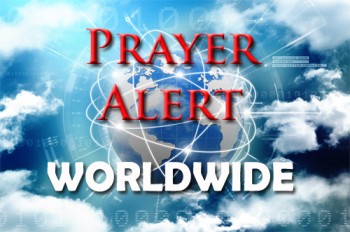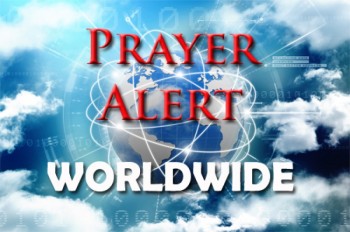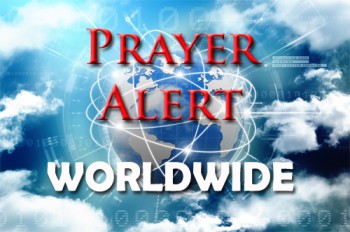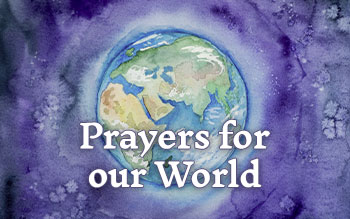Displaying items by tag: Iran
Iraq: who is behind attacks?
Recently there have been four attacks on weapons storage facilities belonging to Iraq’s Popular Mobilization Units (PMU) militia. Some factions of the PMU are believed to be Iran proxies, which might explain why there have been accusations of possible US and Israeli involvement. The latest attack took place even though prime minister Mahdi had closed Iraqi airspace to all unauthorised flights of drones, spy planes, jets and helicopters; including the US-led coalition. With Israel being suspected of organising these attacks, some claim that the United States and Russia have allowed them to do so. Iraq’s president said his country does not want to become a battleground for other countries at the expense of its people. ‘Iraq's interest comes first, and the nation will not allow others to turn it into a land for competition.’
Lebanon: escalation of tensions
Lebanon opened fire on Israeli surveillance drones on 28 August, heightening the conflict between the warring neighbours. Lebanon does not usually attempt to down Israel’s unmanned surveillance planes, but its Hizbollah military wing said it was preparing a ‘calculated strike’ against Israel, in retaliation for an Israeli raid on its position near Damascus and a drone attack in Beirut on its Iranian missile-making equipment. Sources believe Lebanon will target Israeli soldiers on patrol near the border. Israeli media reported that Israel had targeted and destroyed machinery used for the production of precision-guided missiles. It is trying to disrupt the flow of weapons and technology from Iran to its proxies in Syria and Lebanon. In response to constant rocket attacks, Israel has carried out hundreds of strikes against Hizbollah and Iranian positions in Syria, so far with little response. Lebanon’s president is increasingly influenced by Hizbollah, which is also represented in the country’s parliament.
Iran: UK initiative on Strait of Hormuz
On 29 July Iran said that talks with the USA would be possible if based on an agenda that could lead to tangible results, but Washington is not seeking dialogue. Javad Zarif, Iran’s foreign minister, appealed to Mr Trump to ignore the advice of his hawkish advisers and seek a diplomatic solution to the standoff with Iran. Mr Trump has occasionally expressed interest in negotiations, but will not ease sanctions on Iran. Recently France, Italy, and Denmark gave support for a British plan for a European-led naval mission to ensure safe shipping through the Strait of Hormuz. On 31 July Britain invited military representatives of the US and other countries to a meeting in Bahrain to discuss this initiative. See
IRAN: Believers targeted amid US-Iran tensions
Iran (MNN) — Tensions rise between the United States and Iran amid sanctions, threats, and fights over missiles, nuclear deals, oil stores, and shipping routes.
Last week, Iran tested ballistic missiles as the U.S. worked with allies to safeguard ships in the Strait of Hormuz. According to Middle East Monitor, Russia predicts “full-scale armed conflict” in the region.
Unfortunately, these sky-high political tensions have led to a crackdown within Iran, explains Heart 4 Iran’s Mike Ansari. “In the last few weeks, [the] Iranian government has announced the arrest of multiple Iranian citizens who were allegedly CIA spies,” he says.
“In light of the recent sanctions, Iranian authorities are increasing the pressure on Western governments to loosen up the restrictions imposed on Iran.”
Authorities often target believers for accusation and arrest.
Life for believers inside Iran
Earlier this year, Open Doors USA placed Iran at #9 on its World Watch List – a ranking of 50 nations where following Christ is most difficult. By law, Christians cannot share their faith with non-Christians. Believers from a Muslim background face the most oppression because Islamic law governs Iran; society views converts as apostates.
“In Iran, conversion from Islam to Christianity – known as apostasy – is strictly forbidden. In fact, Iranian religious rulers have publicly advocated for the death penalty as a punishment for apostasy,” Ansari explains.
“When a Muslim converts to Christianity, they are warned, persecuted, [sometimes] arrested, and their belongings are confiscated.”
For converts who leave Iran, return could mean imprisonment and severe persecution. “Case in point – Mrs. Fatemeh Azad, a 58-year-old Iranian convert to Christianity who fled Iran, sought refuge in Germany, but was denied asylum and deported back to Iran,” Ansari describes.
“Upon her return, she was arrested and released on bail.”
As reported here by International Christian Concern:
When Fatemeh made her asylum appeal, her lawyers argued that apostasy (conversion away from Islam) is punishable by the death penalty in Iran. This penalty has not been issued in Iran for several years, in large part thanks to international pressure. However, Iran regularly imprisons converts for years. Christians are commonly charged with “acting against national security” and can face a prison sentence of up to 15 years with this charge.
“The Iranian Christian community in diaspora is concerned with the safety and well-being of Mrs. Azad while she resides in Iran,” Ansari says.
How to help
Mrs. Azad’s case represents a larger challenge, he adds. That’s an urgent matter for which you can pray.
“The real concern for Mrs. Azad is that Iranian authorities may use her as a pawn to not only instil fear in the heart of their own people but challenge the international community on human rights and religious freedom in Iran.”
Ask the Lord to comfort and encourage Fatemeh Azad during her imprisonment. Pray for her safety, Ansari requests, and “pray for the multitude of Iranian refugees who have legitimately fled Iran and can’t go back.”
Heart4Iran partners with over 100 groups to bring the love and hope of Jesus Christ to the people of Iran.
Reporting by Katey Hearth for Mission Network News
More at: https://www.mnnonline.org/news/believers-targeted-amid-us-iran-tensions/
Pray: For the safety and freedom of Mrs. Fatemeh Azad and many others in a similar situation to practice their faith.
Pray: That she will not be used as a pawn within Iran or internationally.
Pray: For those working to represent Mrs Azad and other Christians who face persecution in their home countries.
Iran’s piracy and British ships
Currently events in the gulf are operating just below the threshold of all-out war between Iran and the UK/USA over the Straits of Hormuz. On 24 July Al-Jazeera reported that President Rouhani has suggested that, if the United Kingdom releases its tanker seized off the coast of Gibraltar earlier this month, his country will return a British-flagged vessel it apprehended last week. Rouhani made the purported offer during a weekly cabinet meeting, assuring an ‘appropriate response from Iran’ if the UK stepped away from the ‘wrong actions in Gibraltar’. Boris Johnson will immediately have to deal with the crisis over Iran and the deployment of a European-led maritime protection mission which the previous Foreign Secretary Jeremy Hunt announced on 22 July. Six tankers have been sabotaged in six weeks: see
Israel: Iran recruiting spies via social media
Saudi Arabia: US troops return after 16 years
In 2003 the Americans left Saudi Arabia, but now hundreds of American troops will deploy to an airbase outside Riyadh as tensions spike between Iran and its allies and the Trump administration and crown prince Mohammad bin Salman. The deployment of American troops in the kingdom was never popular with Saudis, and comes as their Arab allies desert the crown prince’s war in Yemen. Bringing the Americans back now underscores the king’s deep concern about the regional situation. The American violation of the Joint Comprehensive Plan of Action last year, a move Riyadh encouraged, has set Washington and Tehran on a collision course. Iran cannot allow its oil exports to be curbed by sanctions. The government-controlled Saudi press has openly called for American military action in response to Iranian attacks on oil tankers.
Iran: crisis over oil tankers
Five armed Iranian boats tried to seize a British oil tanker in the Persian Gulf on 10 July. The British Heritage tanker was in international waters when it was approached by Iranian Revolutionary Guard boats and ordered to change course towards nearby Iranian territorial waters. A US aircraft was overhead and video recorded the incident. The UK's Royal Navy frigate HMS Montrose was escorting the tanker from the rear. It trained its deck 30mm guns, designed to drive off small boats, on the Iranians while giving verbal warnings to back away, which they did. The UK's Ministry of Defence said ‘We are concerned by this action and continue to urge the Iranian authorities to de-escalate the situation in the region.’ The incident is yet another flashpoint in a series of maritime episodes involving Iran that have the makings of a political storm. Iran denies all charges. The US is working to strengthen maritime security in the region.
Iran: Rouhani threatens to break nuclear deal
President Hassan Rouhani has said that on 7 July his country would exceed the 3.67% uranium enrichment limit set by the 2015 nuclear deal by ‘as much as necessary, as much as we need’. Iran will reverse this action if the other parties to the deal - Britain, China, France, Germany and Russia - abide by their commitments. The agreed enrichment limit is sufficient for power generation, but far below the 90% level needed to manufacture nuclear weapons. Rouhani also said Iran would restart construction of a heavy water reactor, and bring it to the condition that ‘according to you, is dangerous and can produce plutonium’. Iran has often threatened such action unless it gets some relief from the sanctions imposed on the country. The five other signatories of the deal are struggling to keep it afloat after US president Donald Trump walked out of it last year.
IRAN: Trump Prepared To Talk To Iran
U.S. President Donald Trump says he is prepared to talk to Iran but that there was always a chance of U.S. military action against Tehran.
"So Iran is a place that was extremely hostile when I first came into office," Trump who is on a state visit to Britain, told ITV television on June 5. "They were a terrorist nation number one in the world at that time and probably maybe are today."
Asked if he thought military action might be needed, he said: "There's always a chance. Do I want to? No. I'd rather not. But there's always a chance."
He said, when asked, that he was prepared to talk to Iranian President Rohani: "Yeah of course. I would much rather talk."
Trump's comments come amid heightened tensions between Iran and the United States and its allies in the Persian Gulf.
Washington a year ago withdrew from a landmark 2015 nuclear agreement between world powers and Iran that curbed the country's nuclear program in exchange for relief from economic sanctions.
Trump argued that the terms on the accord were not tough enough to prevent Iran from developing nuclear weapons and did not address the country's missile program or its support for militants in the region.
Since then, Washington has re-imposed sanctions, stepped up its rhetoric, and beefed up its military presence in the Middle East, citing " imminent threats" from Iran.
Iran's Supreme Leader Ayatollah Ali Khamenei said on June 5 that Tehran would not be "deceived" by Trump’s offer of negotiations and would not give up its missile program.
"This political trick will not deceive Iranian officials and the Iranian nation," Khamenei said in a speech broadcast on Iranian television.
Pray: for an end to the escalating tensions.
Pray: that Iran does not develop nuclear capability and adheres to its previous agreement.
Pray: that peace prevails and for a negotiated resolution to the crisis to be achieved.
